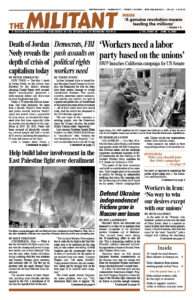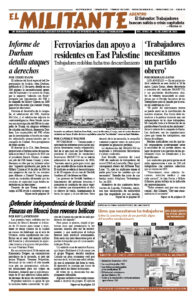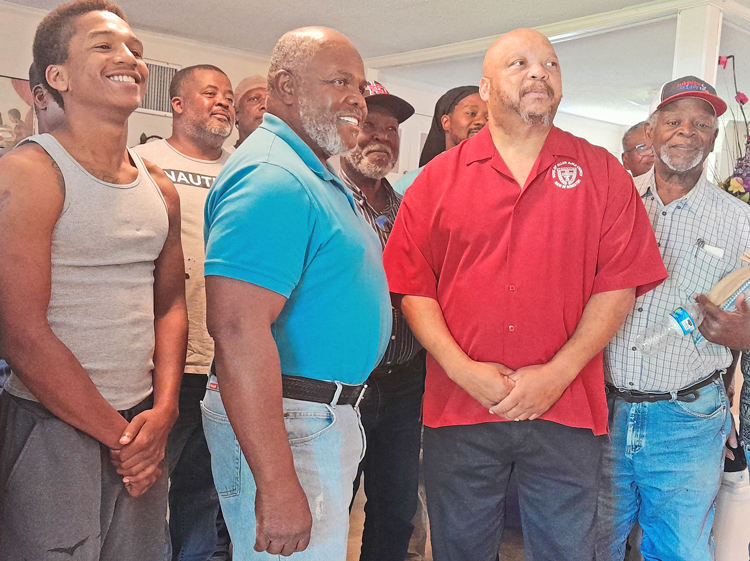QUITMAN, Ga. — “It was good to discuss some of our problems,” Edward Collier told the Militant, after a May 20 gathering of Black farmers in the community of Dixie. Held at the Friendship AME Church, the forum drew 20 people, about 12 of whom were farmers, as well as a representative from the U.S. Department of Agriculture.
“But what is going to come from it? That’s what we’ll have to see.”
Collier, who has a small herd of cattle now, spent 15 years working for the University of Georgia Extension office in Lowndes County and the next 15 years as a material handler at a nearby textile mill, before it closed its doors in 2015, all while farming row crops near Valdosta.
Like the others present, he has been to many meetings of Black farmers determined to find a way to stay in farming and overcome the challenges they and other small farmers face.
As the capitalist crisis deepens, giant food processing monopolies and grocery chains chip away at the prices they give farmers while prices for fuel, fertilizer and other farm inputs soar.
Representing the statewide AME church, Stan Smith was the featured speaker at the meeting. He explained that Democratic Sen. Raphael Warnock had approached the church about holding meetings with Black farmers around the state to learn more about what kind of help farmers need. One aim was to get farmers’ input on what should be included in the 2023 Farm Bill and their support for it.
The farmers described problems they have had and are still having with various USDA agencies and programs and the mountain of red tape they face getting any assistance in a timely way. Two young farmers attended, including a 20-year-old hoping for some guidance about how he could get a start in farming. When the USDA representative had little to say, farmer Charles Brooks said, “Come out to my place and let’s talk.”
“It’s tough for any small farmer,” Brooks told the Militant. “The white farmers aren’t getting the help they need either. We all need to work together, Black, white, Latino, everyone. Black farmers can’t do it alone,” adding that he and several nearby Caucasian farmers often help each other out and share information.
Brooks grows vegetables on 35 acres and sells his crops in grocery stores all over the area.
In answer to farmers who described the continuing problems they face getting assistance from the USDA, government representative D’Vonte Lamons blamed farmers themselves. “Apply, but don’t do anything until you hear from us,” he said. “An application doesn’t mean you’ve been approved.”
Toward the end of the meeting, I explained that Janice Lynn and myself had come to the event from the Socialist Workers Party in Atlanta to learn more about what small farmers face.
Participants were glad to hear about the recent union-organizing victory at Blue Bird bus company, where workers voted to join the United Steelworkers May 12. The plant is in nearby Fort Valley, north of Quitman.
“It is important for farmers of all backgrounds to work together and to reach out to workers, who also face crisis conditions,” I said. “We need to build an alliance between workers and farmers, a movement of working people independent of the capitalist parties. We need a working-class party, a labor party based on the unions. Such a movement could fight for nationalization of the land, so no farmer has to face the threat of foreclosure.” I invited farmers to speak with us further after the meeting.
When the meeting wrapped up, almost everyone who was still there stayed around to talk. Eight farmers got copies of the SWP statement “Building an alliance of workers and farmers.” Four bought subscriptions to the Militant and several others said they wanted to stay in touch. “I’m interested in what you said about a labor party,” said Collier. “There isn’t a dime’s bit of difference between the Democrats and Republicans.”
A follow-up meeting is planned for Aug. 19 at the same location.
Janice Lynn contributed to this article.


